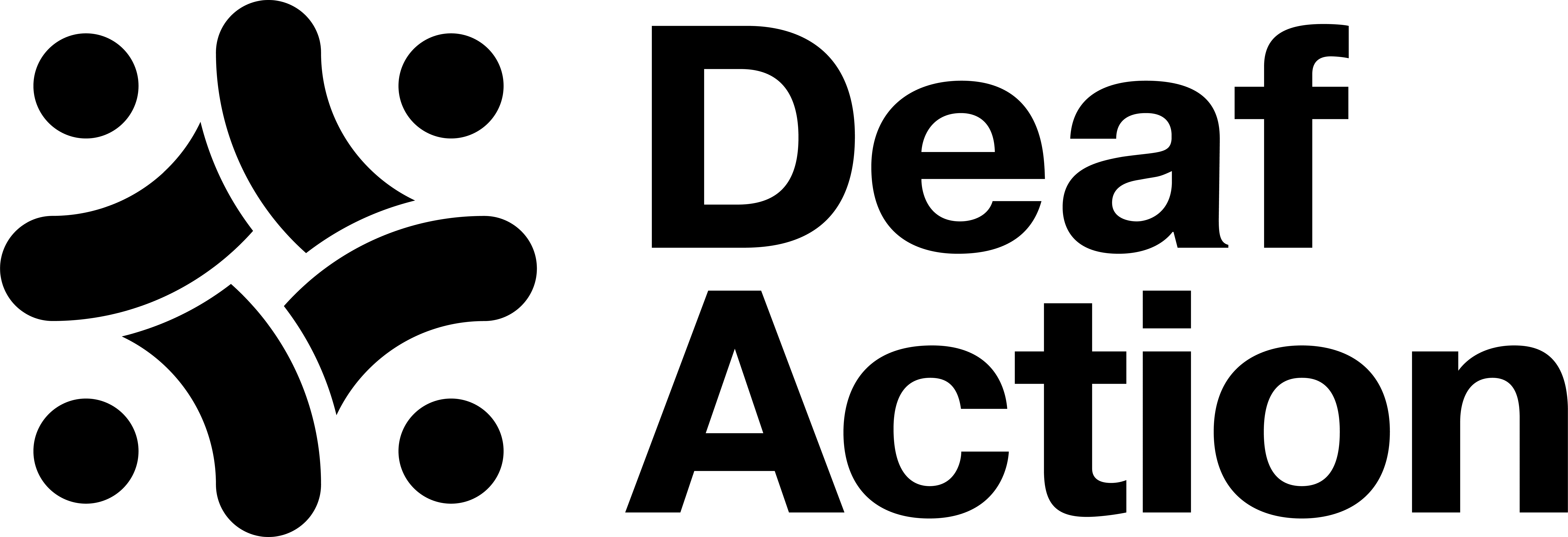Meet Julie, she’s a registered British Sign Language Interpreter. She became an interpreter in 2017 and has been working with deaf people ever since. Julie typically works with deaf people in the workplace, interpreting meetings, training sessions, and much more. Due to the pandemic, most of Julie’s work has moved online – a significant shift from pre-COVID, where she worked almost exclusively face to face. Thanks to lockdown easing, she’s enjoying seeing people and interpreting in person again.
- Why did you become an interpreter?
I became an interpreter for a few reasons; BSL was used in my home growing up therefore I always had a connection and a love for the language. I went to University to study Psychology with Sociology and once I graduated I got a job at Deaf Action working as an Administrator. It was in this job that I got to experience and understand the role of a BSL Interpreter more clearly which I was immediately drawn to. The interpreters that I got to meet inspired me, which made me pursue a career in this field.
- What does a typical day look like?
When working as an interpreter, every day is different. My working days can vary so much depending on what type of work I’m doing. My days usually consist of interpreting workplace meetings, training sessions and events. When I’m out doing community interpreting this can consist of medical appointments, lectures/tutorials or meetings. I also spend a lot of my time preparing for assignments which can include researching terminology, reading through presentations and/or material for an assignment and reaching out to co-workers before an assignment takes place. Preparation is a vital part of the interpreters’ role as it allows us to have an insight and some background knowledge on the topic being discussed.
- Why is accessibility important?
I believe that accessibility is extremely important as its intention is to ensure there exists an inclusive society with equal opportunity. It’s essential that people understand information and have access to services that they need. Businesses, organisations and individuals should always aim to have accessibility at the forefront of their minds in order to reduce inequality and improve access to services.
- Do you feel events are accessible for deaf people? What needs to change?
I don’t think all events are accessible for Deaf people. Some events will provide BSL interpreters, loop systems, electronic notetakers etc. which is great and means that the majority of Deaf people will be able to access the event and have the same experience as everyone else attending. However, at times, events are only made accessible when a request for access is made. Consequently, this can make attendance a challenge as it can be contingent on the availability of a suitable Interpreter, notetaker etc. Going forward, it would be great if all events could be made accessible for all from the outset.
- Favourite part of your job
The favourite part of my job is getting to meet so many different people. I also love that no two days are the same and that I’m consistently learning new things. Language is forever evolving therefore I’m always kept on my toes. I also learn so much from the people that I work with and will always be thankful that I’m able to do a job that I love so much.

